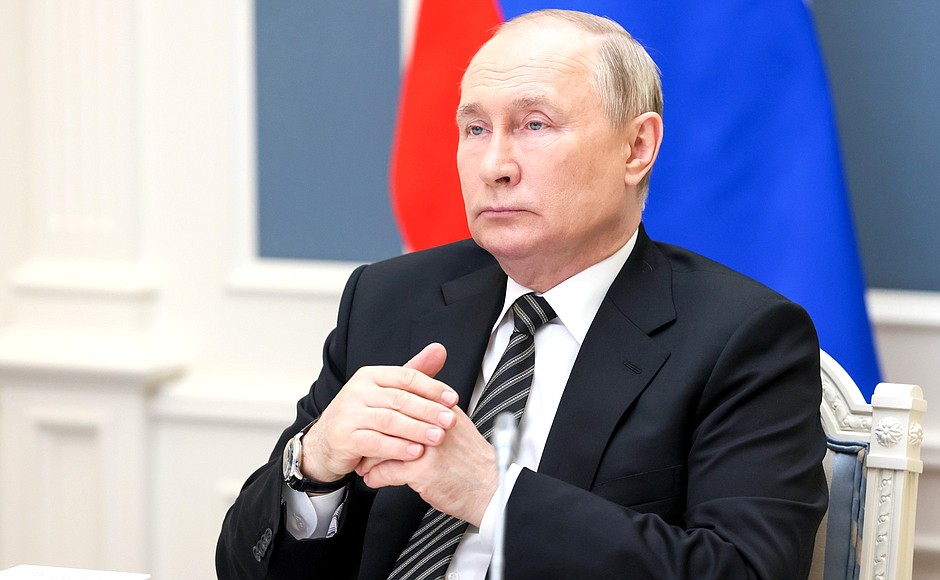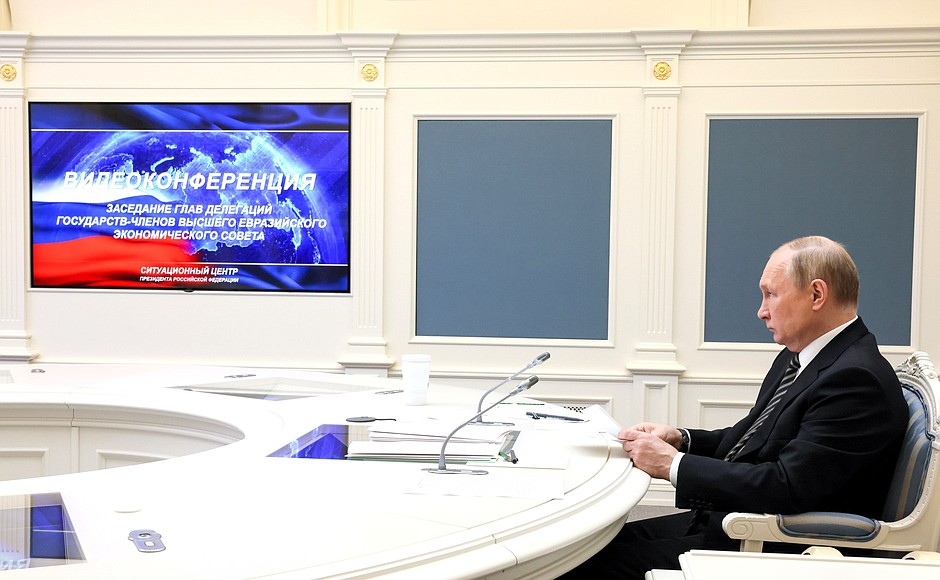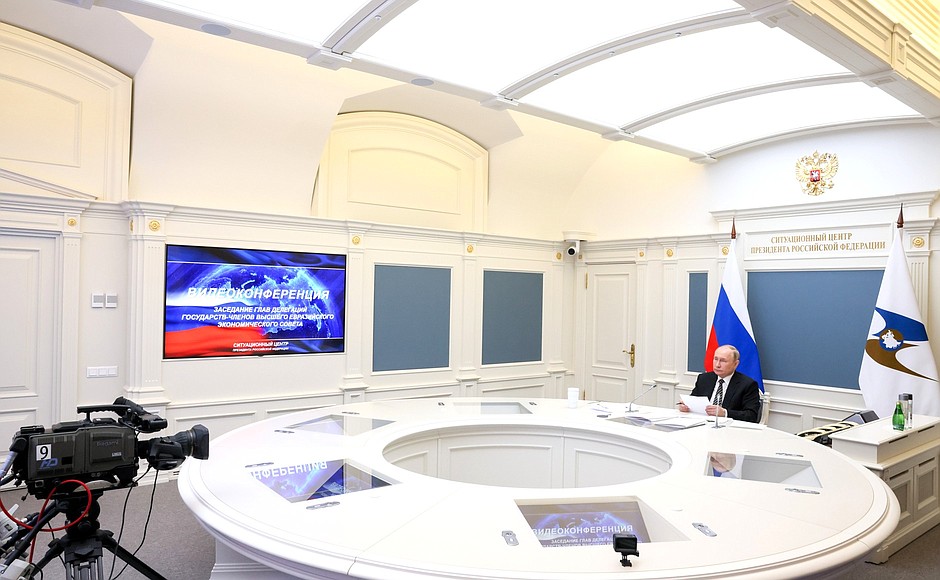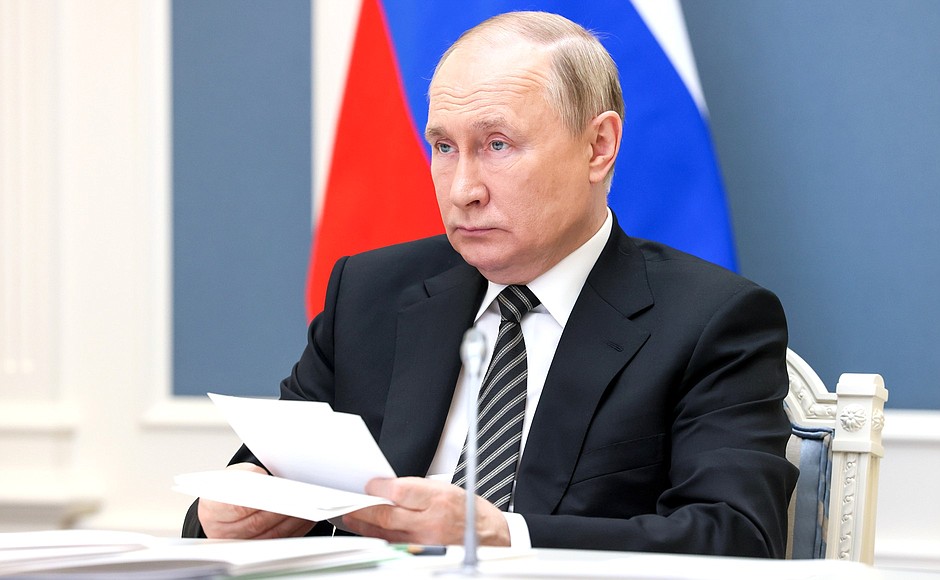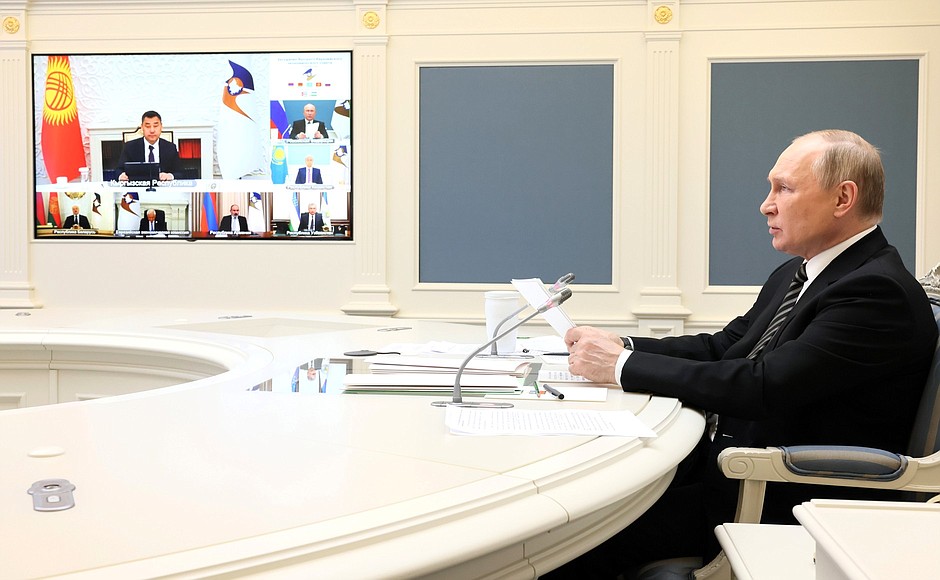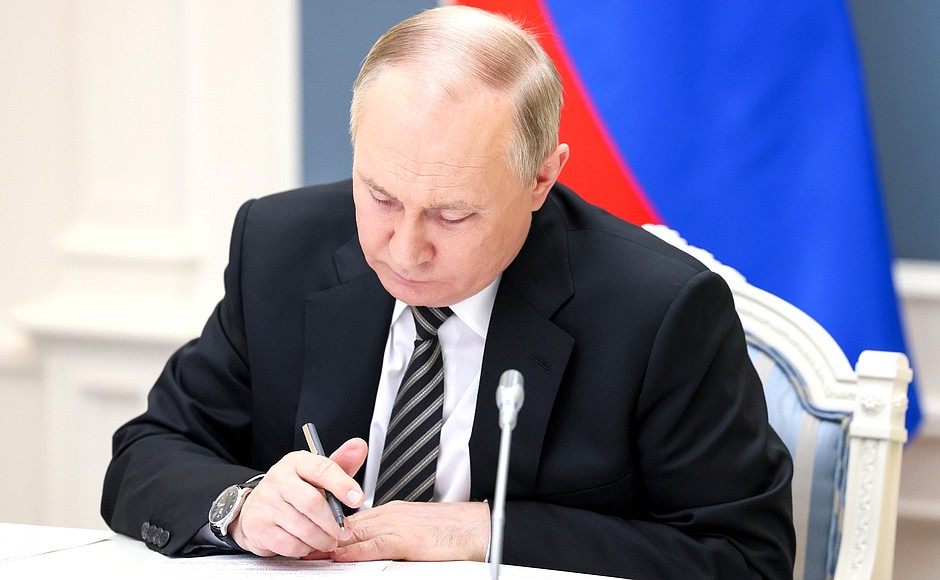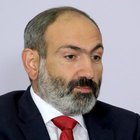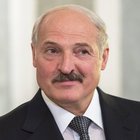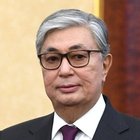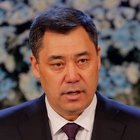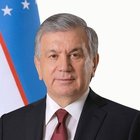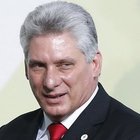Taking part in the meeting were Prime Minister of Armenia Nikol Pashinyan, President of Belarus Alexander Lukashenko, President of Kazakhstan Kassym-Jomart Tokayev, President of Kyrgyzstan Sadyr Japarov, President of Uzbekistan Shavkat Mirziyoyev as the head of EAEU observer state, and Chairman of the Eurasian Economic Commission Board Mikhail Myasnikovich.
President of Cuba Miguel Diaz-Canel Bermudez sent a video address to the meeting participants as the head of EAEU observer state.
A package of documents was approved following the meeting. In particular, a decision was made to begin talks on signing a free trade agreement with the Republic of Indonesia. The main benchmarks for the EAEU member states’ macroeconomic policy for 2022–2023 were determined.
* * *
Address at the meeting of the Supreme Eurasian Economic Council
President of Russia Vladimir Putin: Good afternoon, colleagues.
I share the views of those who have given a positive assessment of the EAEU performance in their statements.
It is true that integration development is gathering momentum within the framework of the EAEU, and the efficiency of our common markets of goods, services, capital and workforce is increasing. Moving one step at a time, we are creating a comprehensive common economic space of the EAEU.
As mentioned earlier, on May 29 we will mark eight years since the signing of the fundamental Treaty on the Eurasian Economic Union. Over that period of time, we have covered a large part of the road, boosting cooperation on the principles of equal dialogue and mutual respect, and trying to strengthen, and strengthening, our Eurasian union. We have done this very expeditiously, turning the EAEU into an effective and influential regional economic body and organisation.
We can report substantial achievements in the key spheres of our cooperation, namely trade, the industry, finance and agriculture. Most importantly, the citizens of our countries can see the practical effect of our integration, which we have been working on consistently, in everyday life.
See also
We wholeheartedly support the draft decision to declare May 29 the Day of the Eurasian Economic Union. Our calendar will have one more landmark day, which unites our nations and symbolises the commitment of the EAEU states to integration development.
Eurasian integration is really paying off, as you can see from the economic indicators.
Mutual trade between the EAEU member states has been growing consistently. According to available information, our trade increased by approximately one-third in 2021 to $72.6 billion. The member states’ aggregate GDP grew by 4.6 percent (4.7 percent in Russia), industrial production by 5.3 percent, investments in fixed assets by 6.8 percent, completed construction projects by 5.4 percent, the construction of housing by 12 percent, and cargo turnover by 4.7 percent.
It is notable that our cooperation is based on plans and is developing systematically. We are working persistently to implement the programme of the strategic development of Eurasian economic integration until 2025.
Our countries’ economic and regulatory authorities continue their efforts to identify and eliminate the remaining restrictions and barriers to the free movement of goods, services, capital and workforce in the EAEU internal market. In the last two years alone, 30 such restrictions have been lifted.
And of course, life itself dictates the need to create a truly barrier-free market across the EAEU territory. We are all certain that closer integration will make our countries stronger, economically, and significantly reduce dependence on external factors, including political ones.
The advantages of the integration policy are especially obvious now, in the current difficult international situation, amid real aggression on the part of certain unfriendly states. The President of Belarus mentioned this specifically, here. But we would like to note that the Russian Government is making timely decisions to ensure the stable, confident functioning of the markets and the financial sector. Much attention is paid to supporting key industries and major employers. The rules for doing business have been significantly simplified – the administrative burden has been dramatically reduced to ensure as much freedom as possible for entrepreneurs.
We are also working to increase the availability of financing for businesses’ operational expenses and to maintain bank liquidity. To this end, we are expanding the practice of mutual payments for goods in national currencies with the countries that have proved reliable partners of Russia. By the way, the share of payments in national currencies in the EAEU countries has already reached 75 percent.
In this regard, I would like to note that at Russia's initiative, the Eurasian Five have adopted a number of urgent anti-crisis measures aimed at minimising the consequences of sanctions, increasing the resilience of our economies, strengthening their macroeconomic stability, and helping entrepreneurs and citizens of our states.
The Eurasian Economic Commission has approved more than 30 anti-crisis measures, and they have certainly had an effect.
Three packages of measures have been approved since March to streamline customs regulation, putting an end to the duties on more than 1,600 critical imports. As a result, importers will be able to save up to $800 million over the next six months.
In addition, the requirements of the EAEU technical regulations have been relaxed. To restrain prices, the Commission raised the threshold for the duty-free import of goods for personal use to 1,000 euros.
Steps are being taken to replace imports and further deepen industrial cooperation between the EAEU countries in strategic sectors, including civil aircraft construction and pharmaceuticals.
An interstate programme is being prepared to expand the digital infrastructure in the EAEU countries. More digital solutions are being deployed to serve logistics corridors; high-tech customs administration services are being introduced; e-commerce is being developed and improved.
I consider it important that we prioritise efforts to ensure food security. You know that the global situation is rather complicated. Our countries are making a major contribution to resolving these problems, and Russia and all other members of our organisation are acting in a highly responsible manner.
Today, our five countries produce enough foodstuffs and agricultural produce to fully meet domestic demand. Considering the fact that the EAEU is the largest agricultural exporter in the world, as I have already said, our organisation implements all possible measures, including customs tariff and non-tariff regulation, for maintaining sustainable supply chains.
Colleagues, we are pleased that, despite the complicated international situation, the confrontation unleashed by the collective West, and our ill-wishers who are trying to hamper our integration in every possible way, all of us can clearly see that many foreign partners are becoming more and more interested in the activities of the Eurasian Economic Union. Our colleagues have noted this right now.
Active talks are now underway to conclude a full-fledged free trade agreement with Iran, among others (we have already mentioned these countries). This agreement aims to replace the current temporary 2018 agreement, which has already expanded the Union’s trade volumes with the Islamic Republic of Iran. By late 2021, trade soared by 73.5 percent and reached $5 billion. EAEU exports increased 2.1-fold, to reach $3.4 billion.
To preserve the existing preferential trade treatment with Iran, we support a decision to extend the temporary agreement, pending the signing of a new free trade agreement.
We also deem it advisable to speed up talks on signing a free trade agreement with Egypt and to launch similar talks with Indonesia. In addition, we need to explore the possibility of signing a preferential trade agreement with the United Arab Emirates.
In conclusion, I would also like to thank President of Kyrgyzstan Sadyr Japarov for the excellent organisation of our work. We are noting the efforts of Kyrgyzstan, as president of the Eurasian Economic Union, to ensure the effective performance of our association throughout 2022, and we strive to provide all possible assistance to our Kyrgyz friends. We will continue to do so in the future.
I would like to emphasise once again that Russia prioritises deeper allied ties with all EAEU states. We hope very much that our closest partners, including Uzbekistan, will move in a direction that meets the interests of Uzbekistan, and that they will also develop our association accordingly, while assessing all the advantages of intra-EAEU cooperation. In turn, we will do our best to maintain integration processes in the Eurasian region.
Thank you.
